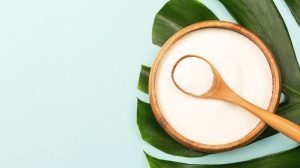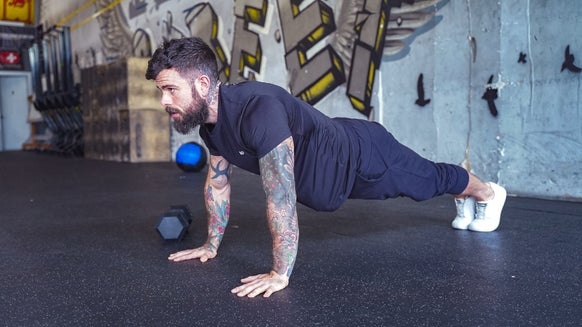
Marine collagen is a powerful option to incorporate into your supplement regimen to boost collagen production and slow the signs of aging. That's right, the most powerful skincare might actually come from within...
- What is Marine Collagen Powder?
- What are the Benefits of Marine Collagen Powder?
- Dosage
- Foods with Marine Collagen
- Side Effects

What is marine collagen powder?
Collagen is a structural protein that plays many roles in the body. Marine collagen powder comes from fish sources - including scales, bones, and skin.
It’
What are the benefits of marine collagen powder?
While collagen is a protein, it works differently than whey or other protein powders that primarily boost muscle tissue.
Taking marine collagen powder is thought to boost your natural collagen production by triggering your body to increase collagen production. So w
Can reduce signs of aging
Collagen has been shown to improve skin elasticity, thickness, and hydration.3 Your skin is your largest organ, and although you can spend lots of money on collagen skin care products, using a collagen supplement has the power to boost skin health from the inside out.
Can help to relieve joint discomfort
Can help preserve muscle mass
Collagen protein, like all other proteins, is made up of amino acids. When our body digests proteins into the smaller amino acid
Dosage
With most collagen supps, a couple scoops is all you need each day. It dissolves easily into any drink and the time of day you take it doesn’t make much difference. You can mix it easily into your coffee in the morning or a post-workout smoothie later in the day - or simply with water.
Foods with marine collagen
While marine collagen can be naturally found in skin, bones, and scales of fish, it is likely more pleasant to take it in supplement form instead.
There are some food sources like canned salmon and fish filets with skin. On days when fish isn’t in your meal plan, you can still get the benefits of powerful marine collagen protein with a convenient supplement.
Side effects
While there are no known side effects or negatives of taking marine collagen, you may want to avoid it if you have a shellfish, fish, or egg allergy. There are other collagen options (mammalian and vegan versions) that don’t contain these potential allergens.
Take home message
Whether you are concerned about your skin, nail, or hair health, want to prevent joint pain, or just add more protein to your daily plan, collagen is a winning choice.
READ THESE NEXT:

Claire is a Registered Dietitian through the Academy of Nutrition and Dietetics and a board-certified Health and Wellness Coach through the International Consortium for Health and Wellness Coaching. She has a Bachelor of Science in Biology and a Master’s degree in Clinical Dietetics and Nutrition from the University of Pittsburgh.
Talking and writing about food and fitness is at the heart of Claire’s ethos as she loves to use her experience to help others meet their health and wellness goals.
Claire is also a certified indoor cycling instructor and loves the mental and physical boost she gets from regular runs and yoga classes. When she’s not keeping fit herself, she’s cheering on her hometown’s sports teams in Pittsburgh, or cooking for her family in the kitchen.
Find out more about Claire’s experience here.
- Lim, Y. S., Ok, Y. J., Hwang, S. Y., Kwak, J. Y., & Yoon, S. (2019). Marine collagen as a promising biomaterial for biomedical applications. Marine drugs, 17(8), 467.
- Bolke, L., Schlippe, G., Gerß, J., & Voss, W. (2019). A collagen supplement improves skin hydration, elasticity, roughness, and density: Results of a randomized, placebo-controlled, blind study. Nutrients, 11(10), 2494.
- León-López, A., Morales-Peñaloza, A., Martínez-Juárez, V. M., Vargas-Torres, A., Zeugolis, D. I., & Aguirre-Álvarez, G. (2019). Hydrolyzed Collagen-Sources and Applications. Molecules (Basel, Switzerland), 24(22), 4031.







